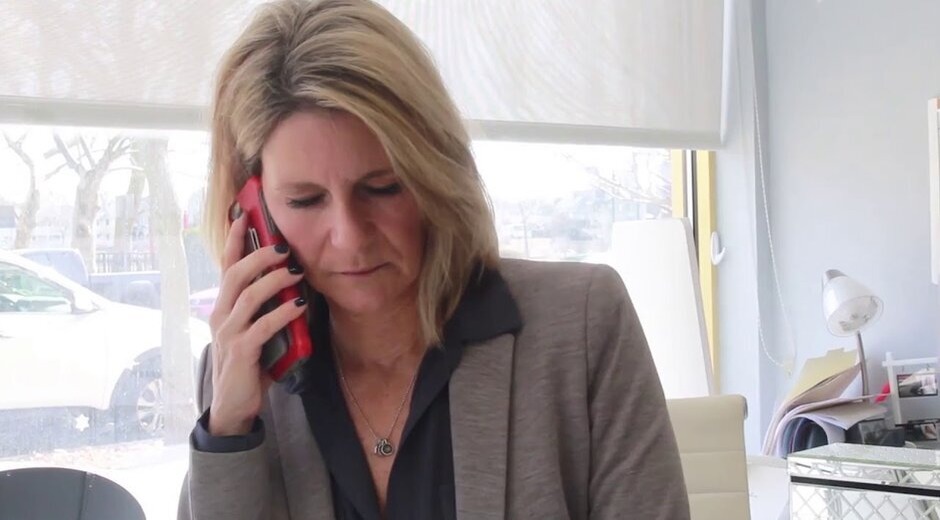Tips to Avoid Utility Scams During the Winter Holiday Season
FirstEnergy shares tips to prevent customers from falling victim to common scam tacticsAKRON, Ohio – Realizing scammers feed off people’s fear of losing heat in the cold weather, FirstEnergy Corp. (NYSE: FE) is providing customers with scam awareness information to help prevent them from falling victim to scammers during the holiday and winter seasons.
Michelle Henry, senior vice president of Customer Experience at FirstEnergy: “Although scammers work year round, they are more active during colder months because they know customers rely on electricity to stay safe and warm and are more likely to comply due to fear of disconnection. Our goal is to help protect the public from imposters looking to take advantage of customers who are caught off-guard by these very convincing schemes.”
In recent years, utilities across the United States have seen increased reports of their customers being contacted by scammers who pose as utility workers to access their financial information or to obtain immediate payment by threatening service interruptions. So far in 2023, FirstEnergy customers have reported more than 1,000 scam attempts to the company. The actual number of scam attempts is even higher since many go unreported to the company or law enforcement.
FirstEnergy’s customers can reduce their risk of exposure to utility scammers by keeping the following information in mind:
We often make courtesy calls to remind customers about outstanding balances and send written notices of a possible disconnection, but we do NOT call or email to demand immediate payment to avoid a same-day shutoff.
Utility impostors often require that you use unusual payment methods like digital payment apps, cryptocurrencies or money transfers. Only send payments to your FirstEnergy operating company using our established payment methods.
FirstEnergy field collectors working in New Jersey, Maryland and Ohio will offer customers with past-due accounts the opportunity to pay their bill in person before disconnecting service. All employees carry company-issued photo identification.
Imposters often use Caller ID spoofing software to misrepresent the source of a phone call to further mislead and confuse their targets. Call-back numbers provided by these criminals often use greetings and hold messages that mimic legitimate businesses. Always contact your electric company using the phone number listed on your bill or on the FirstEnergy website.
If you suspect a scam, hang up or close the door and contact your local police department and FirstEnergy.
If you have any doubts about the status of your account or the identity of a FirstEnergy employee, contact your electric company at the number listed on the website. Never call the number the scammer provides.
Utility imposters have spoofed employment listings on legitimate job-search websites to trick jobseekers into providing personal data. Verify the authenticity of the posting by visiting firstenergycorp.com/careers or contacting FirstEnergy’s Human Resources department at FirstEnergyHR@firstenergycorp.com.
Earlier this month, Utilities United Against Scams (UUAS), a group consisting of more than 150 utilities and related organizations including FirstEnergy, educated the public about the ever-growing list of scams targeting utility customers. Through its work and with the help of customer reporting, UUAS has successfully helped to take more than 13,000 toll-free numbers used by scammers out of operation as of 2022.
The theme of this year’s utility scam campaign is “Screen the Search,” which reflects the rise in utility impostor scams through digital methods, including search-engine related scams.
Digital scam tactics that customers should be aware of include:
Sponsored ads on search engines that lead to an identical—but fake—utility bill payment page;
QR codes that scammers falsely claim link to a utility payment page;
Texts from a scammer claiming to be a utility representative, with a link to an impostor payment page.
Monica Martinez, executive director of UUAS: “We encourage customers to stop and verify any unusual utility company requests before making a payment, regardless of whether the customer is contacted via phone, internet or in person.”
FirstEnergy customers are encouraged to visit firstenergycorp.com/scaminfo periodically for updates and information on emerging scam activity.
FirstEnergy is dedicated to integrity, safety, reliability and operational excellence. Its 10 electric distribution companies form one of the nation’s largest investor-owned electric systems, serving customers in Ohio, Pennsylvania, New Jersey, West Virginia, Maryland and New York. The company's transmission subsidiaries operate approximately 24,000 miles of transmission lines that connect the Midwest and Mid-Atlantic regions. Follow FirstEnergy on X, formerly known as Twitter, @FirstEnergyCorp or online at firstenergycorp.com.
News Media: Chris Hoenig – JCP&L, (609) 350-8599; Todd Meyers – West Penn Power, Penelec, (724) 838-6650; or Lauren Siburkis – Penn Power, Ohio Edison, The Illuminating Company, Toledo Edison, (330) 203-8850; or Hannah Catlett – Mon Power, (440) 554-5346 or Investor Relations: Irene Prezelj, (330) 384-3859

